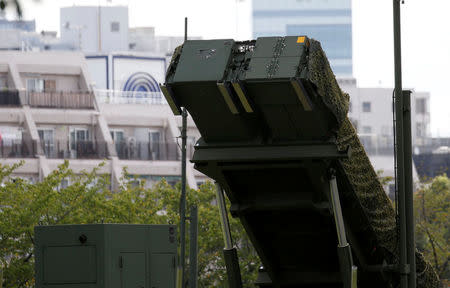Chinese academics prod Beijing to consider N.Korea contingencies

BEIJING (Reuters) - Chinese academics are publicly broaching the idea that China and the United States should share plans on how to deal with a potential conflict on the Korean Peninsula, a sign some say of how North Korea's weapons test may be making Beijing more open to the once taboo subject. Chinese officials have rebuffed top U.S. military brass for years in their efforts to share contingencies for war or regime collapse in Pyongyang, suspicious over Washington's intentions and fearful that such engagement could further alienate North Korea, their once steadfast wartime ally. Jia Qingguo, the dean of the School of International Studies at China's elite Peking University and a respected advisor to Chinese leaders, said in an article this week that with the chances of war increasing daily, it might be time for China to "prepare for the worst". "When war becomes a real possibility, China must be prepared. And, with this in mind, China must be more willing to consider talks with concerned countries on contingency plans," Jia wrote in an article first published on the online East Asia Forum run out of Australian National University. Given recent developments, "Beijing may have no better choice than to start talking with Washington and Seoul", Jia said. Ties between China and North Korea have deteriorated sharply in recent years, to the point some diplomats and experts fear Beijing may become, like Washington, a target of its neighbour's ire. Jia's comments, at the forefront of what is still a sensitive debate in China, were made before North Korea on Friday fired a missile that flew over Japan's northern Hokkaido far out into the Pacific Ocean. That test came after the U.N. Security Council's latest round of sanctions on Monday banning North Korea's textile exports and capping fuel supplies in response to Pyongyang's accelerated effort to target the United States with a powerful, nuclear-tipped missile. Xie Tao, associate dean at the School of English and International Studies at Beijing Foreign Studies University, said Chinese academics in years past would typically only express their opinions on whether China should be sharing plans with Washington behind closed doors. "Now you can get all sorts of people from the left and right and they are allowed to make their views public," Xie told Reuters. "You could interpret that as a signal that the Chinese government is perhaps willing now to consider, if not actually join up to, contingency plans," Xie said. "My sense is that there must be some in-depth discussion about what could potentially happen if there is a collapse or internal chaos – how Beijing and Washington should respond to this." During a trip to China in August, Joseph Dunford, Chairman of the U.S. Joint Chiefs of Staff, attended Chinese military drills at China's Northern Theater Command in the city of Shenyang, which covers China's border with North Korea. Some analysts perceived that as China opening a crack in the door to its own preparations, but neither side are showing their cards to the public. Dunford said in Beijing during that visit that despite Washington's urgings the "conditions aren't set for such a detailed conversation" between the two militaries. U.S. military officials have privately voiced frustration that previous channels established for direct military communications line are essentially unstaffed on the Chinese side. Dunford said creating a round-the-clock "responsive" communications link that could be used in a crisis was a top priority for military ties. (Reporting by Michael Martina; Editing by Lincoln Feast)

